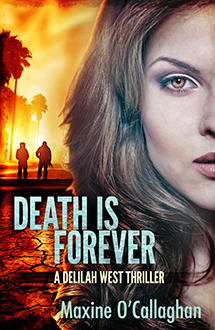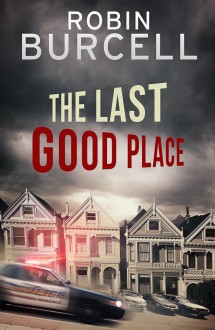
When I began writing my first novel, I was blissfully ignorant of that sage piece of advice: Write what you know. I wasn’t a cop, or a pathologist, or a special agent for the FBI. Besides a stint in the Marine Corp Reserve, I was, first, a secretary, then a stay-at-home housewife and mother who read. A lot. Mostly mysteries and suspense with an emphasis on private eye fiction. So it seemed perfectly natural to me that when one of my first short stories, A Change of Clients, appeared in Alfred Hitchcock’s Mystery Magazine in 1974, it featured a private detective. My only concession to the write-what-you-know maxim was to make my detective a woman, because, well, I was one.
It really didn’t occur to me at the time that a woman PI was rather ground-breaking. Actually, it didn’t even occur to me later on that, because of my short story, Delilah West was in print before Kinsey Millhone or Sharon McCone. After I published several books in the series, a critic pointed this out in a magazine article, causing me one of those light-bulbs-over-the-head moments.
I wrote short stories for a few years before I tackled a novel. I hadn’t forgotten about Delilah. I had written in just enough of her back story to be intriguing. She was a young widow. She and her husband, Jack, ran a detective agency. I wanted to know more about her. I started a book, got about half-way through and realized the first book had to be about Delilah solving Jack’s murder, so I started over. Brash Books re-introduced the series with the first two books–Death is Forever and Run From Nightmare this month, along with a collection of all the Delilah West short stories in the anthology, Bad Luck and Trouble.
Now, for some nuts and bolts. I do research, although not as much as you might imagine. My technique is to write the book the way I think it should be, then go through and research the stuff that I obviously need to know more about. One thing I’m a stickler for is being accurate about how police departments are set up. Ranks, command structure, cop talk—can all be very different. A writer, who shall remain nameless and should know better, once portrayed the Orange County, CA Sheriff riding around in a jeep and solving crimes. Hello? It’s a political office. He sits in his office and does political stuff. Well, administrative stuff, too, if you want to be technical. I have a Southerner’s knack of talking easily to total strangers, so I’ve cold-called the Boston PD as well as Phoenix PD, and, once I convinced them I wasn’t interested in any current investigation, they were happy to give me the info I needed. I’ve talked to the Orange County Coroner who told me why my murder wouldn’t work and suggested something that would. I’ve been lucky enough to be in a writer’s workshop with a cop and a PI, who have helped immensely. A bomb squad detective brainstormed with me to figure out how Delilah could disarm a bomb with nothing but a pair of nail clippers. One thing I realized early on: Fictional private detectives are the glamorized version of the real thing, evolved from Philip Marlowe, Sam Spade and brethern. Real PI work, for the most part, is rarely dangerous and often boring.
I’m also particular about the settings in my books. Here’s where writing what you know is a must for me. I want to know what places look like, smell like, feel like. What grows there? Who lives there? I eavesdrop in coffee shop, start conversations with clerks and waitresses and bus boys. I’ve been to all the locations in the LA area that I write about, including the Orange County Jail—no, not a visit that required a mug shot and a bail hearing. Even I wouldn’t go that far.
All that said, my characters drive the narrative. Naturally, I want thrills and chills, and I try for a really good opening, but the arc of the books is Delilah’s story. I confess I don’t always know where that will lead. But the trip sure has been fun.


